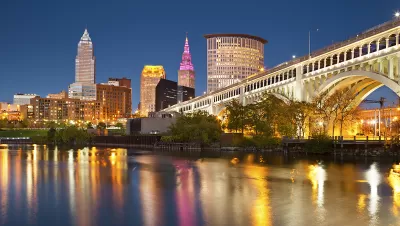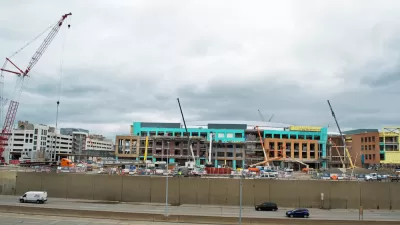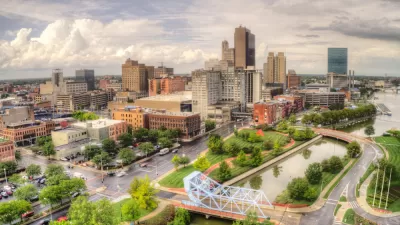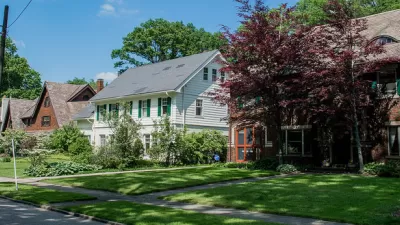A proposed measure would require developers receiving city incentives to provide more benefits to local stakeholders and increase local hiring.

City leaders in Cleveland want to require developers of big projects to offer more community benefits in exchange for tax breaks or other privileges. As Nick Castele reports in Signal Cleveland, the city council wants to ensure that projects create jobs and opportunities for local residents and contractors. According to City Council President Blaine Griffin, “it’s getting harder and harder to sell these big-ticket projects if people don’t see that they’re getting a return on their investment.”
Under the proposed legislation, developers receiving $250,000 or more in taxpayer incentives would be required to meet hiring goals for local, minority-owned, and women-owned contractors, offer apprenticeship and internship programs, and maintain communication with stakeholders, among other items. Projects costing over $20 million would have to adhere to additional requirements. “Those options include hosting job fairs, doing neighborhood infrastructure work and offering joint-venture opportunities to women- and minority-owned firms.”
Under the proposed measure, the city would also have to create a public dashboard identifying community benefits statistics. “The numbers on the board must include the revenue directed toward women- or minority-owned businesses and revenue to Cleveland residents, parsed by race and gender.”
FULL STORY: Council wants more community benefits from Cleveland construction projects

Study: Maui’s Plan to Convert Vacation Rentals to Long-Term Housing Could Cause Nearly $1 Billion Economic Loss
The plan would reduce visitor accommodation by 25,% resulting in 1,900 jobs lost.

North Texas Transit Leaders Tout Benefits of TOD for Growing Region
At a summit focused on transit-oriented development, policymakers discussed how North Texas’ expanded light rail system can serve as a tool for economic growth.

Why Should We Subsidize Public Transportation?
Many public transit agencies face financial stress due to rising costs, declining fare revenue, and declining subsidies. Transit advocates must provide a strong business case for increasing public transit funding.

How to Make US Trains Faster
Changes to boarding platforms and a switch to electric trains could improve U.S. passenger rail service without the added cost of high-speed rail.

Columbia’s Revitalized ‘Loop’ Is a Hub for Local Entrepreneurs
A focus on small businesses is helping a commercial corridor in Columbia, Missouri thrive.

Invasive Insect Threatens Minnesota’s Ash Forests
The Emerald Ash Borer is a rapidly spreading invasive pest threatening Minnesota’s ash trees, and homeowners are encouraged to plant diverse replacement species, avoid moving ash firewood, and monitor for signs of infestation.
Urban Design for Planners 1: Software Tools
This six-course series explores essential urban design concepts using open source software and equips planners with the tools they need to participate fully in the urban design process.
Planning for Universal Design
Learn the tools for implementing Universal Design in planning regulations.
Ascent Environmental
Borough of Carlisle
Institute for Housing and Urban Development Studies (IHS)
City of Grandview
Harvard GSD Executive Education
Toledo-Lucas County Plan Commissions
Salt Lake City
NYU Wagner Graduate School of Public Service





























